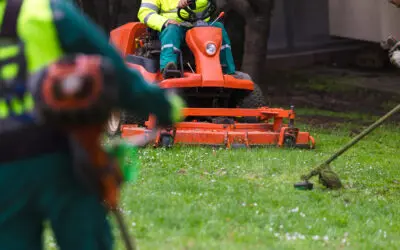87% of Americans Are BBQing This Summer: 2025 Cookout Trends and Where Grilling Is Heating Up
Summer’s heating up, and so are America’s grills. Whether it’s burgers in the backyard or brisket on the smoker, BBQ season is officially in full swing. But which states are truly obsessed with grilling, and how are rising costs, Gen Z habits, and sustainability trends reshaping the way we cook out?
To find out, we surveyed 1,000 Americans and combined their responses with BBQ-related search data and weather patterns across the country. The result? A coast-to-coast look at how, and where, the U.S. is firing up the grill in 2025.
Key Findings
- South Carolina, Louisiana, and Arkansas are the most BBQ-obsessed states in America.
- Alaska, Wyoming, and New Mexico are the least BBQ-obsessed states in America.
- 87% of Americans plan to BBQ this summer, and 1 in 5 say grilling is part of their cultural identity.
- 35% are grilling less due to inflation, while 31% are making more cost-conscious food choices.
- 51% of Gen Z spend over $50 a week on BBQs — more than any other generation
- Overcooked food is the biggest BBQ red flag, followed by bug infestations, political talk, and messy outdoor areas
- 64% are grilling more sustainably by cutting food waste, reusing dishware, and switching to cleaner fuel.
Top 10 States Most Fired Up About BBQ Season
We set out to find the true BBQ enthusiasts in the U.S., and the results are smoking. By analyzing Google Trends data on BBQ-related searches and factoring in average summer temps — with 78°F as the sweet spot — we uncovered the most BBQ-obsessed and most comfortable states for cookout season.
1. South Carolina
South Carolina is widely considered the birthplace of barbecue in the U.S., and it shows, topping the list as the state most fired up about BBQ. The Palmetto State boasts some of America’s oldest, most iconic barbecue traditions, from mustard-based sauces to whole hogs slow-roasted over open spits.
With balmy summer temps averaging 78°F, it’s prime grilling weather nearly year-round, perhaps explaining why South Carolinians score near the top in BBQ-related Google searches (0.98). If you’re traveling through, Lewis Barbecue, Palmira Barbecue, and Maurice’s Piggie Park BBQ are some notable stops with Grade A flavor.
2. Louisiana
Louisiana may be famous for its gumbo, po’boys, and jambalaya, but few barbecues rival those sizzling in New Orleans or Baton Rouge. The weather for firing up the grill is ideal, with an average summer temperature of 81°F. Louisianans searched for barbecue recipes and restaurants more than any other state, earning a perfect score of 1 and claiming the #2 spot in the national BBQ rankings. Beyond home cooking, restaurants like Hickory Stick, Outlaws BBQ, and The Joint pride themselves on delivering great-tasting barbecue.
3. Arkansas
Arkansas is surrounded by BBQ powerhouses like Tennessee and Texas, soaking up bold flavors from its neighbors’ traditions. Some stand-out restaurants include Ridgewood Brothers BBQ, Hoots BBQ, and Wright’s Barbecue. Arkansas sits in the “Goldilocks zone” for BBQs, too, with a perfect average summer temperature of 78°F. While BBQ searches rank lower here (0.78), ideal grilling conditions helped Arkansas clinch the #3 spot in our list.
4. California
America’s most populous state has perfected backyard barbecue culture. While the Golden State’s average summer temperature runs a little cool at 74°F, Californians are still keen to fire up the grill. Google Trends ranks California fourth in BBQ search interest (0.86), and when paired with its mild climate, it locks in the #4 spot overall. California also boasts some indulgent barbecue restaurants like Heritage Barbecue, Horn Barbecue, and Moo’s Craft Barbecue.
5. Texas
The home of slow-cooked, smoked meats, Texans know they have it good when it comes to BBQ with choices like Jay’s BBQ Shack, Briscuits, Franklin Barbecue, and KG BBQ, to name a few. Texas runs hotter than ideal grilling weather, with an average summer temperature of 82°F, but that hasn’t dampened its BBQ obsession. Texans score 0.85 in barbecue-related searches, landing the Lone Star State in the top five.
6. Missouri
Barbecue is so popular in Missouri that it boasts two distinct styles: Kansas City and St. Louis BBQ. With a mild average summer temperature of 74°F, the Show-Me State runs cooler than most, but that doesn’t stop Missourians from firing up the grill. They search for “BBQ” more often than residents of Tennessee or North Carolina.
7. Arizona
Arizona’s capital, Phoenix, sees an average of 100 days over 100°F. But the scorching heat hasn’t dulled Arizonans’ passion for barbecue. With a summer average of 78°F and a 0.73 BBQ search interest score, Arizona stands out as a hidden gem for serious grillmasters.
8. Oklahoma
Oklahoma has earned its status as a top spot for summer grilling. Oklahoma has ideal summer weather for barbecue, with an average temperature of 79°F. Residents score a 0.74 in BBQ-related Google searches, reflecting their strong appetite for grilling, smoking, and all things barbecue.
9. Tennessee
Memphis-style barbecue is one of the world’s most popular BBQ traditions, famous for perfecting pork ribs and dry-rubbed pulled pork. Tennessee summers are milder than its Southern neighbors, averaging 75°F, which is ideal for year-round grilling. With a 0.76 BBQ search interest score, the Volunteer State remains a hotbed for serious pitmasters.
10. Alabama
Alabama enjoys its seat in the heart of the BBQ belt, where grillmasters expertly prepare pork shoulders and ribs. While Alabama’s average summer temperature of 79°F is ideal for grilling, its BBQ search interest trails slightly at 0.70, but it still secures the state a solid spot in the top 10.
Top 10 States Least Fired Up About BBQ Season
Not every state brings the heat when it comes to barbecue. From chilly temperatures to low interest in grilling, these states land at the bottom of the summer BBQ rankings.
1. Alaska
Clocking in at a cool average summer temperature of 48°F, Alaska ranks as the least BBQ-friendly state in the nation. While the chill dampens grilling enthusiasm, Alaska still outpaces other low-ranking states with a 0.45 BBQ interest score on Google Trends.
2. Wyoming
The Cowboy State has the coolest average summer temperature in the lower 48, with a chilly summer average of 60°F. Wyomingites’ interest in BBQ is among the lowest nationwide, scoring just 0.27 in “BBQ” searches. But that doesn’t mean the state lacks flavor; buffalo and elk steaks have fueled cowboys for over a century.
3. New Mexico
New Mexicans have the lowest interest in BBQ in the U.S., ranking dead last in barbecue-related searches with a score of just 0.04. New Mexico enjoys an average summer temperature of 72°F — warmer than most other bottom-tier states — showing that lack of interest, not weather, drives its low BBQ ranking. Still, the Land of Enchantment isn’t lacking in flavor, serving up regional staples like green chile cheeseburgers and carne adovada.
4. Vermont
With an average summer temperature of 65°F, grilling in Vermont might come with a chill. Vermonters’ interest in barbecue is low, too; they score just 0.25 in “BBQ” searches. But folks in the Green Mountain State aren’t going hungry, thanks to a cuisine rich in maple syrup, cheese-laden dishes, and iconic ice cream.
5. West Virginia
The Mountain State averages a mild 70°F during summer — plenty warm for firing up the grill. However, Mountaineers show little interest in barbecue, ranking second to last in BBQ-related Google searches with a score of just 0.14. Instead, West Virginians savor comfort foods like meatloaf, cornbread, and berry-filled pies.
6. Idaho
Idaho averages a summer temperature of 61°F, making it one of the chilliest grilling spots in the Lower 48. Idahoans score 0.43 in BBQ searches, which is higher than other bottom-tier states, but still low overall. The Gem State makes up for it with culinary flair: Boise serves up Basque-inspired dishes, and huckleberry desserts statewide in summer.
7. Rhode Island
Barbecue is popular across America, but Rhode Islanders are less enthusiastic about grilling than most. The state scores just 0.27 in “BBQ” searches and averages a summer temperature of 68°F. Instead, Rhode Island is better known for its coastal cuisine — think clam cakes, chowder, and fresh-caught seafood.
8. Massachusetts
Much like Rhode Island, the Bay State scores just 0.27 in “BBQ” searches and enjoys a mild summer average of 68°F. As another seafood powerhouse, Massachusetts is better known for clam chowder, lobster, and Boston cream pie than backyard grilling.
9. New York
If you’re visiting the Big Apple, skip the barbecue and go for bagels or pizza. New York is colder than BBQ powerhouses like Texas, with an average summer temperature of 66°F. It’s no surprise, then, that this state scores just 0.32 in “BBQ” searches.
10. Maine
Another seafood hotspot, Maine, averages a cool summer temperature of 64°F. Mainers score 0.43 in “BBQ” searches, showing some interest, but clearly favoring crab and lobster rolls over burgers and hot dogs.
Grill Nation: For 1 in 5 Americans, Barbecuing Is a Way of Life
1 in 5 Americans say barbecuing is more than just cooking — it’s part of their cultural identity. Another 64% enjoy grilling without attaching deep meaning to it, while only 16% rarely touch the grill, preferring other cooking methods.
Gen Z is keeping the flame alive. A quarter of Gen Z say grilling is a way of life, compared to just 16% of baby boomers, making them 56% more likely to view barbecue as a hometown tradition.
Young men, in particular, embrace the grill: 30% of Gen Z men say barbecuing is central to who they are. But Gen Z women aren’t stepping aside — 1 in 6 (18%) say grilling holds the same significance for them.
The Backyard Is America’s Favorite Place To Grill
Backyards may rule as Americans’ preferred grilling location, but millennials are doing things differently — 28% do most of their grilling at someone else’s home. Similarly, 29% of Gen Z prefer public spaces like parks, compared to just 4% of baby boomers. That gap likely comes down to space, as nearly 9 in 10 baby boomers (89%) stick to home grilling.
Why Americans Love To Grill: A Combination of Taste and Tradition
Most Americans say that they love barbecue for one simple reason: they prefer the taste of grilled food. However, that isn’t their only motivation. Here’s why Americans enjoy barbecuing:
The gender divide adds more flavor to the data. Men rank the enjoyment of grilling as their second most important reason to barbecue. Women, on the other hand, see grilling as a cherished summer tradition, valuing its role in bringing people together more than men do.
The Key to a Great Barbecue? Great Weather
Nothing spoils a barbecue like a sudden downpour. To find out what really makes for the ultimate grilling experience, we asked Americans to rank the most important BBQ elements:
- Good weather;
- Great food and grill skills;
- Comfortable seating and shade;
- Clean, well-maintained outdoor space;
- Bug-free environment;
- Clean air quality;
- Good grill smells.
That said, Gen Z will show up for a barbecue come rain or shine. They rank great food and grilling skills as the single most important factor for creating a great grilling experience. Baby Boomers, on the other hand, prioritize sunshine and comfort, placing nearly equal value on good seating as they do on food and grill mastery.
Bad Food Is the Top Barbecue Turnoff
Everyone agrees that good weather makes for a great barbecue, but what makes a good grill go bad?
Burgers and Corn Are America’s Favorite Barbecue Foods
Nearly 1 in 5 Have Used AI for Grilling Advice
From ideal cook times to flavor pairings, AI is becoming the secret ingredient for some Americans behind smarter, stress-free summer grilling. Nearly 1 in 5 (19%) have turned to AI tools like ChatGPT for barbecue tips. Another 1 in 6 (18%) say they’d consider using AI the next time they step up as grillmaster.
Younger Americans are most enthusiastic about AI grilling advice, and it’s no surprise Gen Z leads the charge. More than a third (37%) have used tools like ChatGPT for recipes and tips, with 1 in 8 saying they use it regularly, followed closely by 1 in 10 millennials.
The Majority of Americans Host a Barbecue Every Summer
The Economy Is Heating Up — and So Are Changes to America’s Grilling Habits
Gen Z is feeling the squeeze the most. More than half (53%) say they’re scaling back on barbecuing due to the economy. 47% of millennials are also firing up the grill less.
Barbecuing can get expensive quickly, and many Americans spend up to $50 on food, supplies, or fuel for grilling every week during the summer:
As the most passionate about backyard grilling, young Americans are also the biggest spenders. More than half of Gen Z (51%) dish out $50 to $100 weekly on barbecue supplies during the summer months. Millennials trail closely, with 31% regularly spending the same.
With a strong desire to grill weighed against mounting economic pressures, many are making lifestyle shifts to keep the fire going this summer.
Men Have More Hubris on the Grill
When it comes to firing up the grill, Americans aren’t lacking confidence. 86% say their barbecue skills outshine the neighbors’, making backyard BBQs a battleground for self-proclaimed top chefs.
Men top the list of self-proclaimed grill masters — 91% say their barbecue skills beat their neighbors’. With egos this high, a backyard cookoff might just spark a full-blown flavor showdown.
6 in 10 Say Nice Lawns Are a Must for Hosting Summer Barbecues
Nearly two-thirds (63%) of Americans say a pristine lawn is a “must-have” for hosting a barbecue. Another 25% believe a tidy outdoor space is important, even if it’s not essential.
Three-quarters (75%) feel pressure to perfect their yards before inviting guests over. Just 1 in 10 say they don’t feel the need to make any changes before hosting friends or family. Landscaping companies can help homeowners upgrade their backyards by using lawn care software that instantly measures lawns and estimates maintenance costs. These digital tools also streamline things for customers, so they can easily get their yards ready for their next cookout.
Green Grilling: Americans Are Making Their BBQs More Sustainable
64% of Americans are taking sustainability seriously when they grill, adopting eco-conscious changes to their BBQ habits. Some of the most popular environmentally friendly grilling shifts include:
Millennials lead the charge in eco-conscious grilling, with 75% having made sustainability changes. Nearly 1 in 5 (18%) opt for plant-based meats, while a third reuse dishware, and 40% actively work to cut down food waste.
Summer BBQs aren’t just a seasonal pastime. They’re a cultural staple, a social ritual, and for many — especially Gen Z — a source of pride. Some states boast ideal weather and serious BBQ energy, while others fall short due to cooler temps or lower enthusiasm. Still, across the country, Americans are gathering around the grill.
Methodology
We surveyed 1,000 Americans on May 15, 2025, to uncover what they look for in a good BBQ. We also asked respondents how climate change and inflation are affecting their grilling, in addition to grilling and barbecue preferences. Responses were analyzed across a range of demographics, including age, gender, income, and region, to identify trends amongst this summer’s grillmasters.
We also used Google Trends data (May 2024-May 2025) and average 2024 temperatures — favoring the ideal 78°F — to create a weighted ranking of the best states for grilling.
Fair Use Policy
Users are welcome to utilize the insights and findings from this study for noncommercial purposes, such as academic research, educational presentations, and personal reference. When referencing or citing this article, please ensure proper attribution to maintain the integrity of the research. Direct linking to this article is permissible, and access to the original source of information is encouraged.
For commercial use or publication purposes, including but not limited to media outlets, websites, and promotional materials, please contact the authors for permission and licensing details. We appreciate your respect for intellectual property rights and adherence to ethical citation practices. Thank you for your interest in our research.



